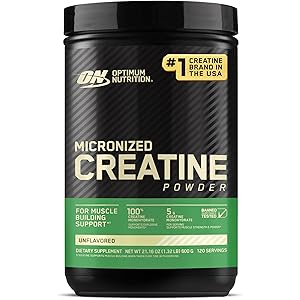SmartyPants Kids Multivitamin Gummies - Improved Formula: Omega 3 (DHA/EPA), Vitamins D3, C, B12, B6, Vitamin A, K & Zinc, Gluten Free, Three Fruit Flavors, 60 Count (30 Day Supply)
$14.65 (as of October 25, 2025 06:13 GMT +00:00 - More infoProduct prices and availability are accurate as of the date/time indicated and are subject to change. Any price and availability information displayed on [relevant Amazon Site(s), as applicable] at the time of purchase will apply to the purchase of this product.)What is Calcium?
Calcium is a vital mineral that plays a crucial role in various bodily functions. It is the most abundant mineral in the human body, primarily found in bones and teeth. Calcium is essential for maintaining strong bones, facilitating muscle contractions, and supporting nerve function. The body requires a consistent supply of calcium to perform these functions effectively, making it an important component of a balanced diet.
The Importance of Calcium in the Body
Calcium is not only important for bone health but also plays a significant role in blood clotting, hormone secretion, and muscle contraction. When the body does not receive enough calcium, it may begin to draw from the bones, leading to weakened bone structure and increased risk of fractures. This highlights the importance of maintaining adequate calcium levels throughout life, particularly during childhood, adolescence, and older adulthood when bone density is critical.
Sources of Calcium
Calcium can be obtained from a variety of dietary sources. Dairy products such as milk, cheese, and yogurt are among the richest sources of calcium. For those who are lactose intolerant or prefer non-dairy options, leafy green vegetables like kale and broccoli, fortified plant-based milk, and certain fish such as sardines and salmon are excellent alternatives. Additionally, calcium-fortified foods, including cereals and juices, can help individuals meet their daily calcium requirements.
Recommended Daily Allowance of Calcium
The recommended daily allowance (RDA) of calcium varies by age and gender. For most adults, the RDA is around 1,000 mg per day, while women over 50 and men over 70 are advised to increase their intake to 1,200 mg per day. Children and adolescents have varying needs based on their growth stages, with recommendations ranging from 700 mg to 1,300 mg per day. It is essential to consult with a healthcare provider to determine individual calcium needs based on lifestyle and health conditions.
Calcium Deficiency and Its Effects
A calcium deficiency can lead to several health issues, including osteoporosis, a condition characterized by weak and brittle bones. Symptoms of calcium deficiency may not be immediately apparent, but over time, individuals may experience muscle cramps, numbness, and an increased risk of fractures. Long-term deficiency can also affect dental health, leading to weakened teeth and gum disease. Therefore, ensuring adequate calcium intake is vital for overall health and well-being.
Calcium Supplements: Are They Necessary?
While obtaining calcium from food sources is preferred, some individuals may find it challenging to meet their daily requirements through diet alone. In such cases, calcium supplements may be recommended. However, it is important to consult with a healthcare professional before starting any supplementation, as excessive calcium intake can lead to health issues such as kidney stones and cardiovascular problems. A balanced approach that includes both dietary sources and supplements, if necessary, is ideal for maintaining optimal calcium levels.
Calcium and Bone Health
Calcium is often associated with bone health, and for good reason. It is a key component of bone tissue, providing strength and structure. During childhood and adolescence, adequate calcium intake is crucial for building bone mass, which peaks in early adulthood. After this peak, maintaining calcium levels becomes essential to prevent bone loss as part of the aging process. Engaging in weight-bearing exercises alongside sufficient calcium intake can further enhance bone density and reduce the risk of osteoporosis.
Calcium’s Role in Muscle Function
Calcium is essential for muscle function, as it facilitates the contraction and relaxation of muscle fibers. When a nerve stimulates a muscle, calcium ions are released, allowing the muscle to contract. After the contraction, calcium is pumped back into storage, enabling the muscle to relax. This process is vital for all types of muscle activity, from voluntary movements like walking to involuntary actions such as the beating of the heart. Therefore, maintaining adequate calcium levels is crucial for overall muscle health and function.
Calcium and Heart Health
Calcium also plays a significant role in cardiovascular health. It is involved in the contraction and relaxation of the heart muscle, helping to regulate heart rhythm. Additionally, calcium aids in the proper functioning of blood vessels, ensuring that they can constrict and dilate as needed. However, it is important to balance calcium intake with other nutrients, such as magnesium and vitamin D, to support heart health effectively. A well-rounded diet that includes these nutrients can contribute to overall cardiovascular wellness.


